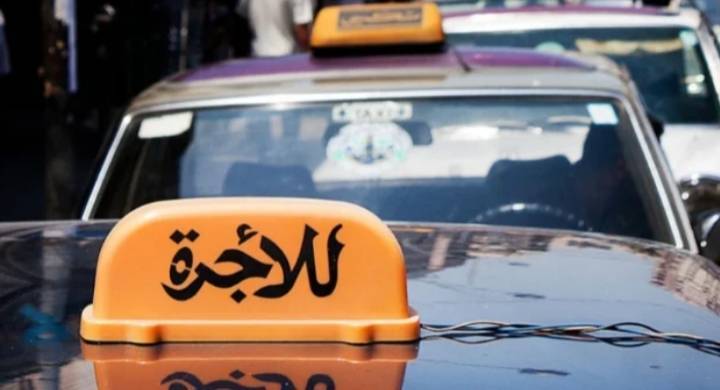The dollar crisis has literally exploded in the Lebanese streets over the past two days, as rumors about the "dollarization" of services have turned into a painful reality that some joke about as if it were a prank. As for fuel prices, it is an understatement to say they have surpassed a million Lebanese Lira since Tuesday evening until this morning, meaning in less than 48 hours. This has driven taxi owners and private transport companies to "dollarize" their fares, and this is just the beginning!
Regardless of the "black market" games that control the exchange rate of the dollar, there is no doubt that the service sector in the country cannot continue at this pace, which is forcing it towards closure and surrendering to the hell it has been led into. Between profit and loss, there is a thin line that taxi companies have cut with their latest decision, leaving citizens victims of the economic situation for the thousandth time, especially since some individuals rely on taxi services for transportation to work, but this luxury has now become reserved for the affluent until further notice.
Bashar Al-Hajj, an owner of a company in the Hadat - Baabda area, stated to MTV that "the current financial volatility in the parallel market and the ensuing insane rise in fuel prices puts us before two options with no third: either to close our source of income and sit idly at home waiting for relief, or to ride the general wave and take the risk... Personally, I will not accept that my son goes hungry, so I set the fare in 'fresh dollars', and as the popular saying goes, 'do not sleep among graves nor see horrible dreams.'"
Al-Hajj reveals that "the demand for taxi services has dropped by about 80% compared to 2018 and 2019, simply because citizens’ abilities and priorities have changed, in addition to the rising transportation costs that an employee receiving a salary in Lebanese Lira cannot bear, not to mention the daily crimes we hear about that terrify citizens from requesting taxi services except in dire emergencies."
In parallel, other taxi companies in the region followed Al-Hajj's lead, considering that this way they protect themselves from losses, as they will remain profitable whether the dollar rises or falls. For instance, a company based in Hazmieh sent a text message via WhatsApp to its customers on Wednesday morning, stating: "Dear customers, due to the current economic situation in the country, please be informed that from now on, we will be collecting fares in U.S. dollars, to be paid in Lebanese Lira according to the dollar's exchange rate in the parallel market. Thank you for your understanding and cooperation, hoping that things will stabilize soon."
Based on the new fare structure, transportation prices within the Beirut administrative area range between $5 to $6, from Baabda to Zalka is $8, to the airport starting from $10 up to $20, and to Freya between $40 and $45. The fare from Dora to Dhabiyeh, a distance of no more than 7 kilometers, has reached $7, while to Arz and Baalbek or border areas, it reaches $100 or more, depending on the number of passengers and type of vehicle requested.
From their perspective, taxi company owners believe that the rising dollar has forced them to raise their prices. Is their decision enforceable? Bassam Tlaiss, head of unions and syndicates for the land transport sector, confirmed to MTV that "what is being circulated about the new fare is illegal," stressing that "no company, even if it is private, is allowed to change its tariff or replace the national currency with the dollar without consulting the relevant authorities, or at least the Ministry of Public Works, which usually issues a detailed statement if the minister decides that, but so far this decision has not been addressed at all, and we have no relation to it."
As for whether public drivers bear the consequences of their company’s decision, Tlaiss pointed out that "public drivers have no connection to their company’s decisions, as they are paid employees and do not have the authority to approve or reject administratively," calling on citizens to "report companies that charge fares in dollars so that appropriate action can be taken."
It is easy to raise fares or adopt them exclusively in U.S. dollars, but how will citizens pay this increase with their current salaries? Is it necessary to humiliate everyone who does not own a private car?




